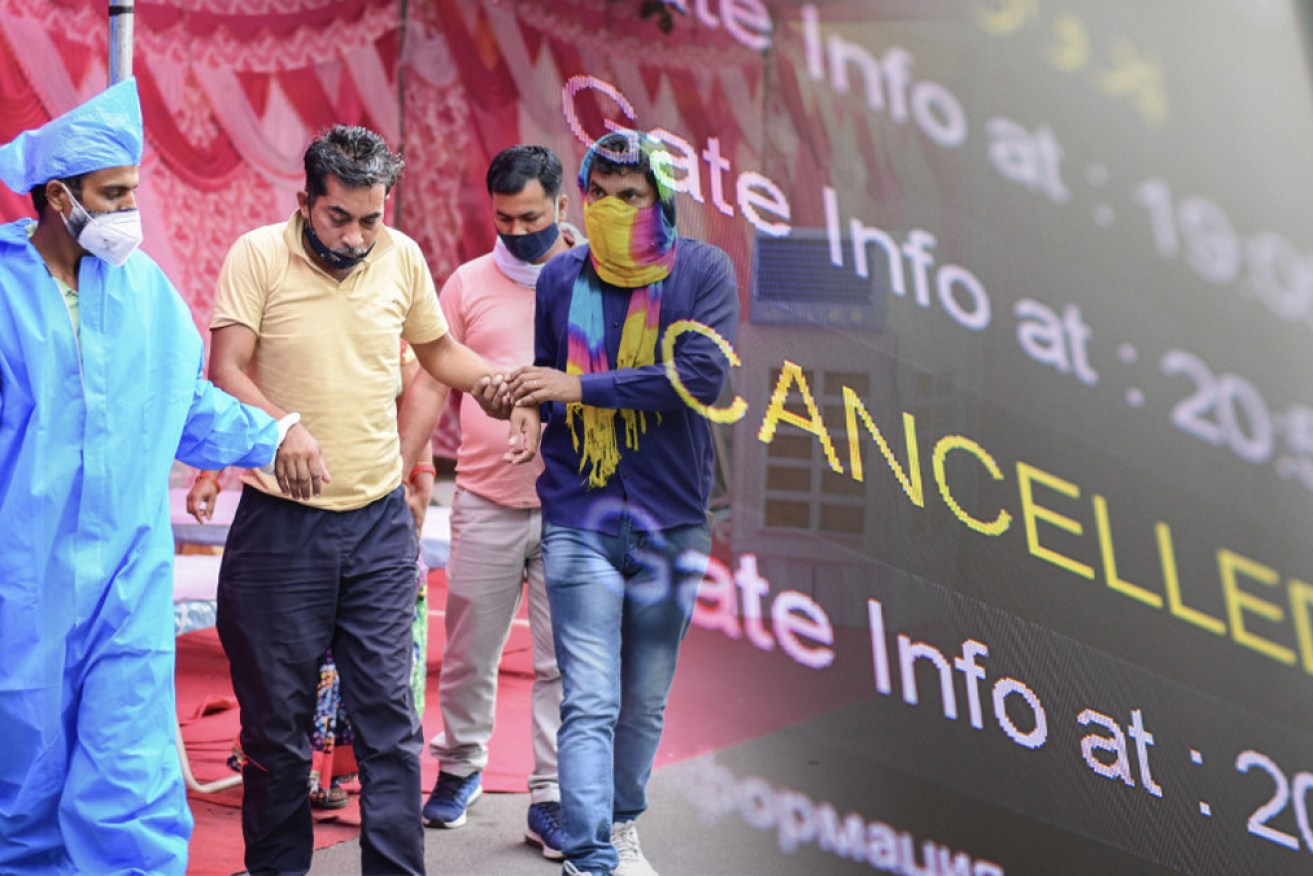Parentless in India: The 173 unaccompanied children desperate to come home


Kids stranded in India have been unable to board repatriation flights, it has been revealed. Photo: TND
More than 170 children without their parents are among the Australian citizens stranded in India as the Morrison government’s controversial travel ban enters its second week, a Senate hearing has heard.
Government officials were scrambling to organise repatriation flights for more than 9000 Australians stranded in India on Friday as the world’s worst COVID-19 outbreak worsened, with 4000 new deaths reported.
But Department of Foreign Affairs and Trade officials confirmed 173 stranded children can’t fly home because they’re not eligible for seats on Qantas’ government rescue flights without a parent or guardian.
Officials revealed the government had not considered a special mercy flight to bring the children home, as parents of stranded minors pleaded with the COVID-19 Senate committee on Friday for urgent repatriation.
Dilin, whose six-year-old daughter has been stranded since 2020, held back tears as he told senators how he repeatedly tried to contact the Department of Home Affairs about the family’s case, but received no reply.
“We literally pray every night and see whether there’s anything that can be done, if the government is willing to at least consider the option of bringing in our minors, bringing in these little kids,” he told senators.
“There’s a period of her childhood that we’ve missed, and we certainly don’t want to miss any more.”
DFAT officials said they’ve been working with families to return stranded children, but Australia’s High Commissioner to India, Barry O’Farrell, said just 20 children have flown home since last December.
The New Daily understands most of the children are living with extended family, grandparents, uncles and aunties.
News of the possible repatriation came as Prime Minister Scott Morrison confirmed the government’s travel ban with India would end on Friday, May 15, amid a widespread backlash over the move and a human rights challenge in Federal Court.
“The biosecurity order that we have put in place has been highly effective, it’s doing the job that we needed it to do,” Mr Morrison said.
Mr Morrison said commercial flights were “unlikely” to resume when the ban lifted, although a final decision will be made next week.
The 900 most vulnerable
In the meantime, the government is trying to organise six repatriation flights to rescue 900 ‘vulnerable’ Australians in India over the next month.
But just three of those flights have been confirmed so far, officials told senators, revealing there were actually eight repatriation flights planned before the travel ban was introduced last week.
Australians will also need to return two negative coronavirus tests before they’re allowed to fly home, Mr Morrison said.
Under current plans just 450 vulnerable Australians stranded in India will be flown home on flights scheduled for May 15, 24 and 31.
It is hoped Victoria, Queensland and NSW will accept their own rescue flights, which could help the other 450 stranded Australians return over the next month, although numbers had not yet been confirmed on Friday.
No timeline has been confirmed for those state government flights, while DFAT officials were also unable to outline concrete plans for how the government plans to rescue more than 8000 other stranded citizens.
DFAT has been asked to review its list of vulnerable Australians stranded in India before repatriation flights resume on May 15.
Mr Morrison said those deemed most in need will be prioritised, which means they will be given 24 hours advance notice to secure a seat before other stranded Australians are notified.
“[We’re] bringing back the most urgent of cases,” Mr Morrison said.
The government has been under pressure to expand its repatriation program after its decision to threaten those disregarding its travel ban with jail time came under fire this week.
Chief Medical Officer Paul Kelly told senators on Friday the ban was necessary to reduce coronavirus-positive travellers in quarantine facilities.
“I believe the temporary pause was the right decision, weighing up all the risks and benefits,” Professor Kelly said.
More flights to be organised
Professor Kelly said the government would look to ramp up the repatriation program in coming months, signalling more than six flights would be booked.
“Not only restarting but rapidly increasing the number of flights coming from India is going to be the number one focus,” he said.








